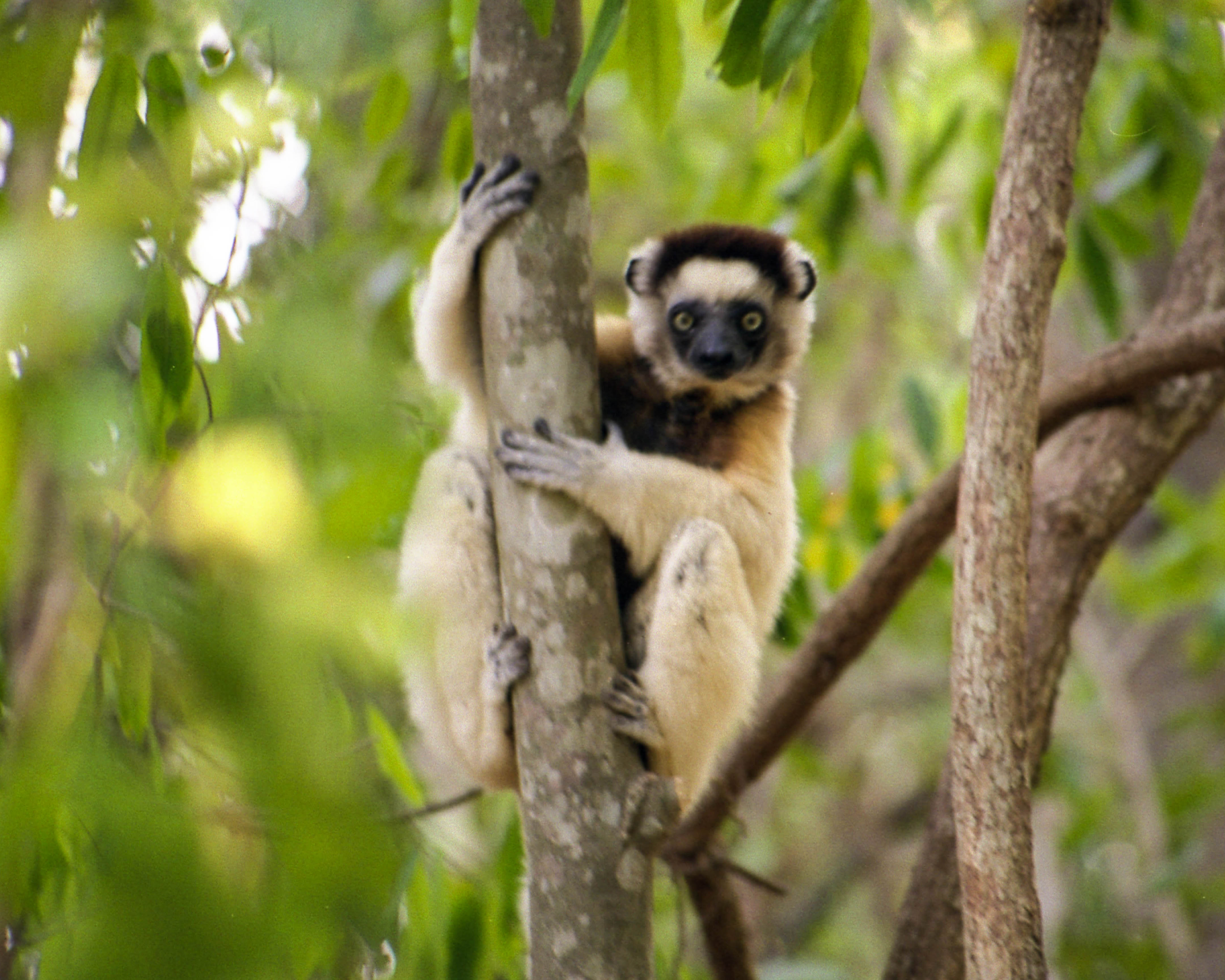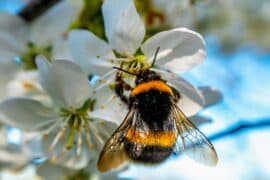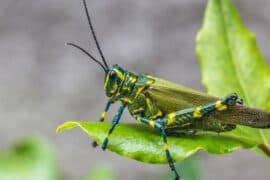Verreaux's sifaka
(Propithecus verreauxi)

Description
Verreaux's sifakas are diurnal and arboreal,and engage in sunbathing with outstretched arms and legs.They move through the trees by clinging and leaping between vertical supports.They are capable of making remarkable leaps through the trees - distances of 9–10 m are not uncommon.On the ground,they hop bipedally.They live in family groups,or troops,of 2-12,which may consist of one male and female,or many males and females together.Group and population sex ratio can be more or less skewed toward males.Many groups seem to be effectively harem groups with a single dominant male unrelated with resident female(s).They have a home range of 2.8 to 5.0 ha,and although they are territorial,they defend food sources rather than territorial boundaries,as often boundaries overlap.Females are dominant over males,forming a matriarchal society.Females use anogenital secretion mainly for territory demarcation whereas males seem to use specialized secretions (via anogenital and throat glands) more for sexual "advertisement" than for territorial purposes.Males show bimorphism,by showing either a clean or stained chest,derived from throat gland secretions and smeared on surfaces by rubbing the upper part of the chest.Stain-chested males engage in the most active marking,and chest staining seems to be related to testosterone levels.Males and females were found to engage in a biological market,exchanging grooming for grooming during the non-mating period,and grooming ("offered" by males) for reproductive opportunities (sexual access "offered" by females) during the mating period.A study found that females copulate more with stained-chested than with clean-chested males.On the other hand,clean-chested males,with a lower scent-releasing potential,usually offer more grooming to females.This “grooming for sex” tactic allows males with a clean chest to get to copulate with females,even if at low rate.It has also been discovered that sifaka dyads often engage in post-conflict reunions after aggressive episodes: reconciliation occurs more frequently when food is not involved and for low intensity aggressions.In this species play behavior persists into adulthood where it is used,especially by stranger males during the mating period,as an ice-breaking mechanism to reduce xenophobia.
Taxonomic tree:







